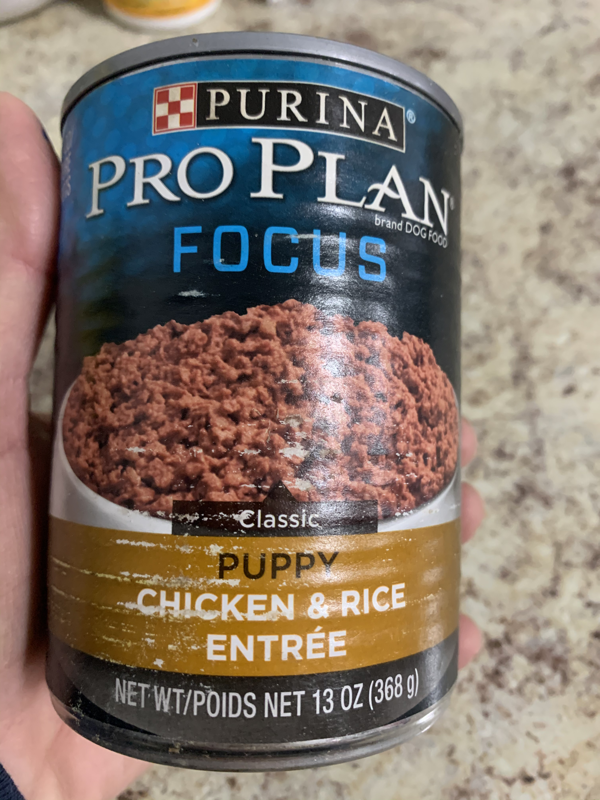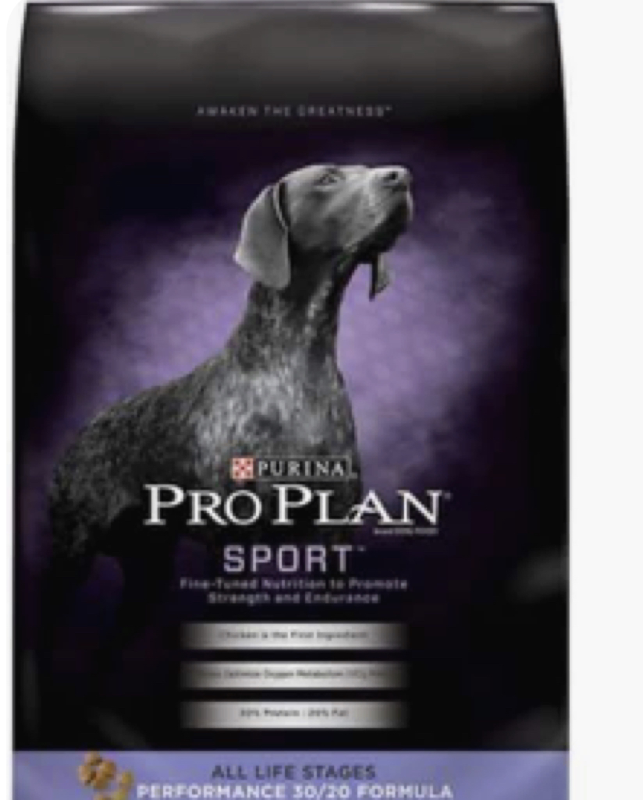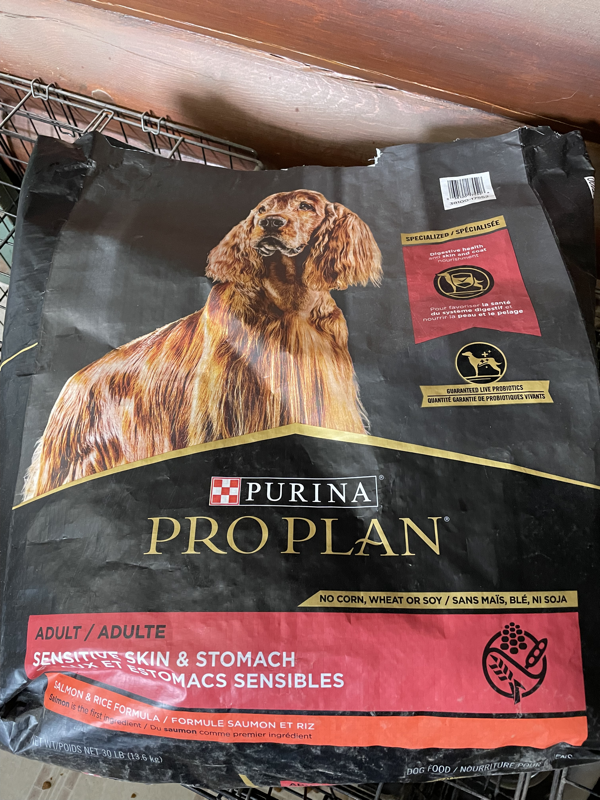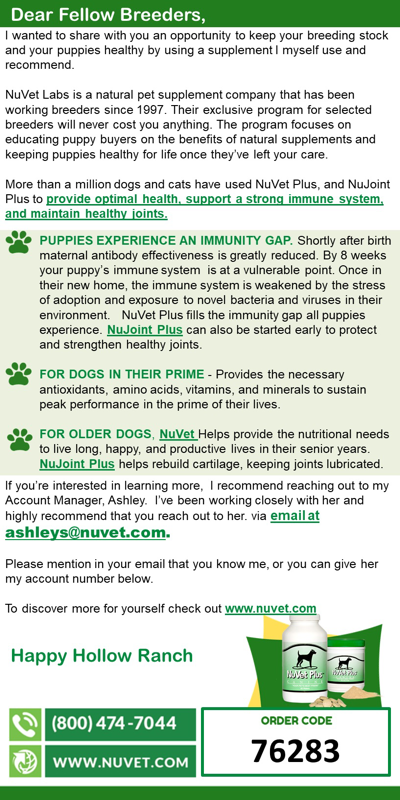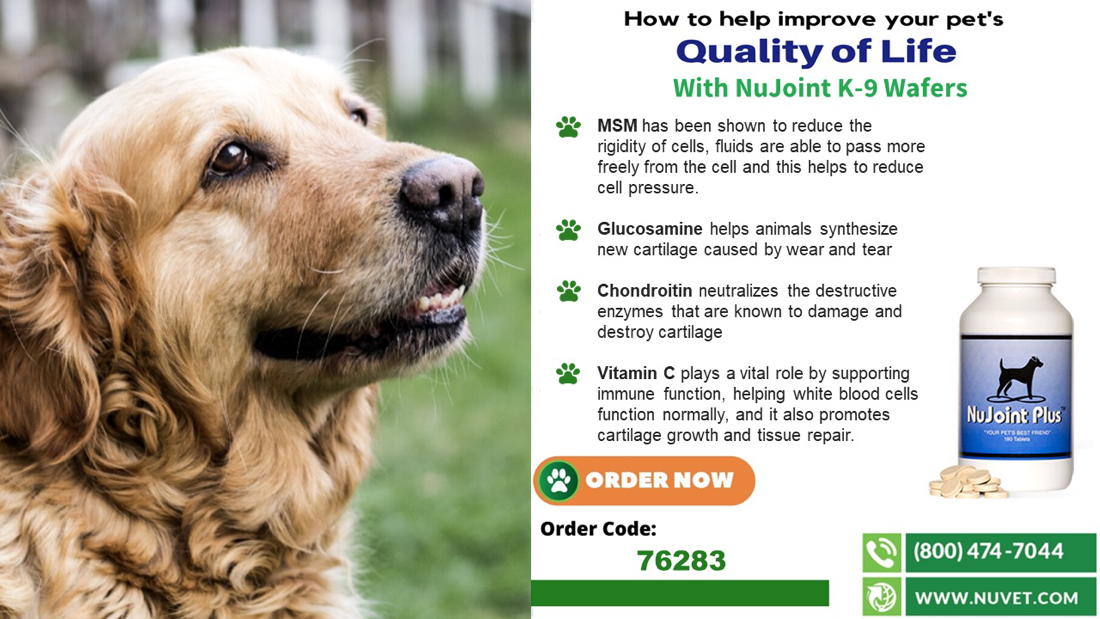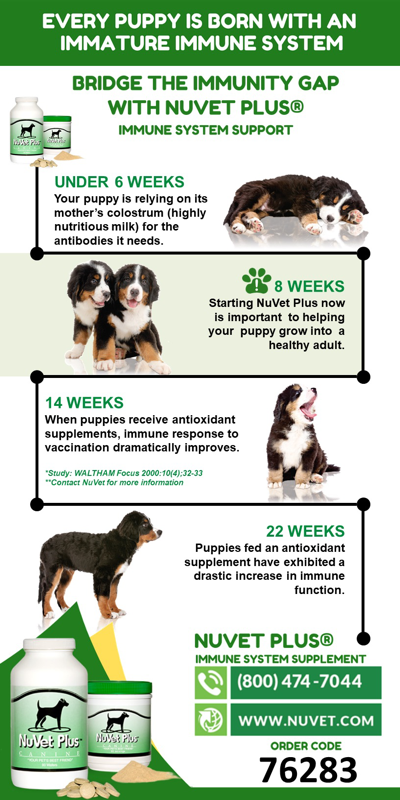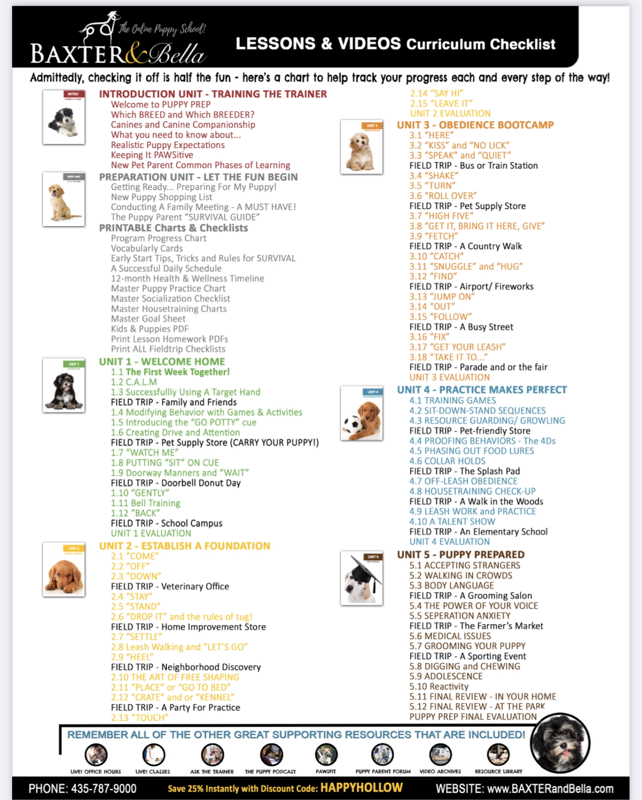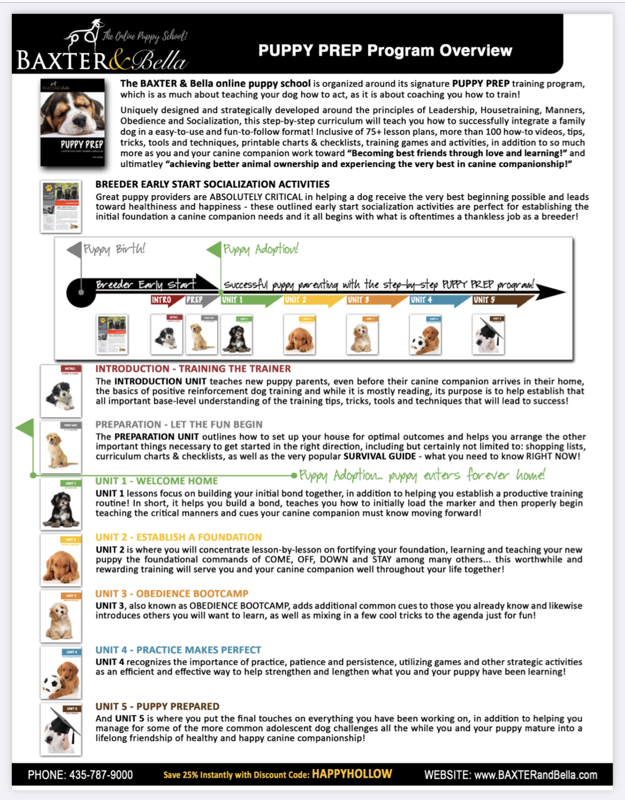HEALTH - TRAINING - GROOMING
We feed our dogs PurinaPro Plan - we highly recommend you keep your puppy on this food for at least 45-60 days after taking your puppy home. Puppies are very subject to stress when going to new home and changing their food can cause stomach issues.
Most of our puppies are on Pro Plan Sport, if you are getting a multi gen the puppy will be on sensitive stomach.
Most of our puppies are on Pro Plan Sport, if you are getting a multi gen the puppy will be on sensitive stomach.
All of our puppies are given Nu Vet Plus supplement from the time they start eating. We highly recommend you continue using this supplement until your puppy is 6 months old (can be continued for life). Nu Vet Plus boosts the immune system dramatically. With many parvo strains becoming more and more resistant to vaccines, we feel using NU VET PLUS is a very important part of your puppies health and well being.
Natural Human Grade Ingredients
USA made in an FDA lab
60 day money back guarantee
As little as .52 cents a day
It is only available through a breeder. Here is the order code number for purchasing: # 76283
www.nuvet.com/76283
1-800-474-7044
Natural Human Grade Ingredients
USA made in an FDA lab
60 day money back guarantee
As little as .52 cents a day
It is only available through a breeder. Here is the order code number for purchasing: # 76283
www.nuvet.com/76283
1-800-474-7044
TRAINING
Puppy training is the single most important aspect of puppy raising!
We highly recommend Baxter and Bella online puppy training school.
We highly recommend Baxter and Bella online puppy training school.
GENETIC TESTING
All of our dogs have genetic testing. Currently some of our dogs are carriers but not affected. We are working to eventually have all clear panel dogs but in the meantime some of our pups may be carriers. Note that carriers are just that, carriers are not affected since it takes two copies of a gene to make an affected dog. So a dog with one copy is not at any risk.
All of our dogs have genetic testing. Currently some of our dogs are carriers but not affected. We are working to eventually have all clear panel dogs but in the meantime some of our pups may be carriers. Note that carriers are just that, carriers are not affected since it takes two copies of a gene to make an affected dog. So a dog with one copy is not at any risk.
MDR1
If you live with a herding breed, you probably know that your dog may be sensitive to certain parasite-control products, antibiotics, sedatives, chemotherapy drugs and pain medications. Many Collies, Australian Shepherds and related breeds can suffer life-threatening illnesses or even die if given those medications. That’s because they have a gene mutation that allows these drugs to build up in the brain, where they can cause neurological reactions, including tremors, disorientation and blindness.
I’m proud to say that it was researchers at my alma mater, Washington State University College of Veterinary Medicine, who first discovered the mutation of the multidrug resistance gene, known as MDR1, and then, in 2010, developed test procedures to identify dogs with the mutation.
What does this mean for you?
It’s now easy to determine whether it’s safe to give your dog a particular medication without running the risk of a severe reaction. Right now, the main breeds known to be affected are herding dogs and mixes, but as more dogs are tested, it’s likely that the list of affected breeds will grow. Knowing whether your dog is affected can help your veterinarian choose medications that won’t cause adverse effects.
What You Need to Know?
Most commonly affected breeds: Australian Shepherds (standard and miniature), Collies, McNabs, Longhaired Whippets and Silken Windhounds (the latter two breeds are thought to have Shetland Sheepdog in their ancestry). Other breeds in which the mutation has been found are English Shepherds, German Shepherd Dogs, Old English Sheepdogs and Shetland Sheepdogs.
Drugs to avoid in dogs with the MDR1 gene mutation: The tranquilizer acepromazine; a pain medication called butorphanol; the anti-cancer drugs doxorubicin, vinblastine and vincristine; the antibiotics erythromycin and rifampin; anti-parasitic drugs such as ivermectin (in high doses), milbemycin, moxidectin and selamectin; and the anti-diarrheal drug loperamide (Imodium).
Mixed breeds can be affected: You may or may not know if your mixed breed has herding dog ancestry. Many mixed breeds who don’t resemble herding dogs have been identified as having the MDR1 mutation. The WSU Veterinary Clinical Pharmacology Lab recommends that mixed breed dogs be tested for the mutation before receiving anti-mange doses of ivermectin, which are much higher than the doses used in heartworm preventive.
Heartworm preventive is safe - The medications used in monthly heartworm preventives are at levels safe enough even for dogs with the MDR1 mutation, as long as the preventives are given according to the manufacturers' recommended dose.
Horse owners, beware - If your canine assistant laps up some of your horse’s paste dewormer or eats the manure of a horse who has been recently dewormed, he could temporarily or permanently lose his eyesight or even die, depending on the amount ingested.
What to Do?
Ask breeders if their dogs have been cleared. Ideally, breeding dogs will have two normal copies of the gene, meaning that they are not affected and will not pass the condition on to puppies. Because the mutation is so widespread in some breeds, however, it would be impossible to eliminate all dogs with the mutation from breeding programs. Knowing a dog’s status can help breeders make wise decisions and gradually reduce the incidence of the mutation in their breed.
© 2001-2018 Vetstreet. All rights reserved. Powered by Brightspot.Vetstreet does not provide medical advice, diagnosis, or treatment. See Additional Information ›
If you live with a herding breed, you probably know that your dog may be sensitive to certain parasite-control products, antibiotics, sedatives, chemotherapy drugs and pain medications. Many Collies, Australian Shepherds and related breeds can suffer life-threatening illnesses or even die if given those medications. That’s because they have a gene mutation that allows these drugs to build up in the brain, where they can cause neurological reactions, including tremors, disorientation and blindness.
I’m proud to say that it was researchers at my alma mater, Washington State University College of Veterinary Medicine, who first discovered the mutation of the multidrug resistance gene, known as MDR1, and then, in 2010, developed test procedures to identify dogs with the mutation.
What does this mean for you?
It’s now easy to determine whether it’s safe to give your dog a particular medication without running the risk of a severe reaction. Right now, the main breeds known to be affected are herding dogs and mixes, but as more dogs are tested, it’s likely that the list of affected breeds will grow. Knowing whether your dog is affected can help your veterinarian choose medications that won’t cause adverse effects.
What You Need to Know?
Most commonly affected breeds: Australian Shepherds (standard and miniature), Collies, McNabs, Longhaired Whippets and Silken Windhounds (the latter two breeds are thought to have Shetland Sheepdog in their ancestry). Other breeds in which the mutation has been found are English Shepherds, German Shepherd Dogs, Old English Sheepdogs and Shetland Sheepdogs.
Drugs to avoid in dogs with the MDR1 gene mutation: The tranquilizer acepromazine; a pain medication called butorphanol; the anti-cancer drugs doxorubicin, vinblastine and vincristine; the antibiotics erythromycin and rifampin; anti-parasitic drugs such as ivermectin (in high doses), milbemycin, moxidectin and selamectin; and the anti-diarrheal drug loperamide (Imodium).
Mixed breeds can be affected: You may or may not know if your mixed breed has herding dog ancestry. Many mixed breeds who don’t resemble herding dogs have been identified as having the MDR1 mutation. The WSU Veterinary Clinical Pharmacology Lab recommends that mixed breed dogs be tested for the mutation before receiving anti-mange doses of ivermectin, which are much higher than the doses used in heartworm preventive.
Heartworm preventive is safe - The medications used in monthly heartworm preventives are at levels safe enough even for dogs with the MDR1 mutation, as long as the preventives are given according to the manufacturers' recommended dose.
Horse owners, beware - If your canine assistant laps up some of your horse’s paste dewormer or eats the manure of a horse who has been recently dewormed, he could temporarily or permanently lose his eyesight or even die, depending on the amount ingested.
What to Do?
Ask breeders if their dogs have been cleared. Ideally, breeding dogs will have two normal copies of the gene, meaning that they are not affected and will not pass the condition on to puppies. Because the mutation is so widespread in some breeds, however, it would be impossible to eliminate all dogs with the mutation from breeding programs. Knowing a dog’s status can help breeders make wise decisions and gradually reduce the incidence of the mutation in their breed.
© 2001-2018 Vetstreet. All rights reserved. Powered by Brightspot.Vetstreet does not provide medical advice, diagnosis, or treatment. See Additional Information ›
Please be aware that even though a dog is tested and clear for MDR1, it can still have sensitivity to certain drugs.
WE recommend that you treat your Aussie or Aussiedoodle like it has a copy of MDR1 just to be safe.
ALL GENETIC AND CONGENITAL GUARANTEES ARE VOID IF YOU OR YOUR VET HAVE GIVEN DRUGS THAT ARE NOT SAFE FOR MDR1 DOGS. THIS INCLUDES BUT NOT LIMITED TO TRIFEXTIS.
WE recommend that you treat your Aussie or Aussiedoodle like it has a copy of MDR1 just to be safe.
ALL GENETIC AND CONGENITAL GUARANTEES ARE VOID IF YOU OR YOUR VET HAVE GIVEN DRUGS THAT ARE NOT SAFE FOR MDR1 DOGS. THIS INCLUDES BUT NOT LIMITED TO TRIFEXTIS.
Documented drugs that cause health issues in dogs with the MDR1 mutation gene are:
Acepromazine (A tranquilizer or pre-anesthetic agent)
If administered to a dog with MDR1 mutation, Acepromazine tends to cause a more profound and prolonged period of sedation. We recommend reducing the dose by 25% for heterozygous dogs with MDR1 (mutant/normal) mutation and by 30 to 50 % homozygous dogs with MDR1 (mutant/mutant) mutation.
Butorphanol (An Analgesic and pre-anesthetic agent)
This drug is similar to Acepromazine, but induces a more profound and prolonged sedation in dogs with the MDR1 mutation gene. It is recommended to reduce the dose by 25% for and by 30 to 50 % homozygous dogs with MDR1 (mutant/mutant) mutation.
Emodepside (Profender is a de-worming drug approved for cat use only within the US)
Other countries have also approved it for use in dogs. If used for dogs with the MDR1 mutation, neurological toxicity may result.
Erythromycin (A macrolide antibiotic used to treat bacterial infections)
If used for dogs with the MDR1 mutation, neurological toxicity may result.
Ivermectin (An anti-parasitic agent)
When Ivermectin is used in the monthly heart worm preventative; it is safe for dogs with the MDR1 mutation. (6micrograms per kilogram) or higher doses, such as those used for treating mange (300 -600 micrograms per kilogram) may cause toxicity in heterozygous dogs with MDR1 (mutant/normal) mutation and will cause neurological toxicity in homozygous dogs with MDR1 (mutant/mutant) mutation.
Loperamide (Imodium TM anti-diarrheal medicine)
This drug should be avoided for dogs with the MDR1 mutation. If used it will cause neurological toxicity in homozygous dogs with MDR1 (mutant/mutant) mutation.
Selamectin, Milbemycins, and Moxidectin (Anti parasitic agents)
Like Ivermectin, these drugs are safe for use in dogs with the MDR1 mutation if used in heartworm preventative according to the Manufacturer's recommended dosage. If the dose is increased (10 to 20 times higher than the heartworm preventative dose), dogs with the MDR1 mutation will experience neurological toxicity.
Vincristine, Vinblastine, Doxorubicin (chemotherapy drugs)
Based on published and ongoing research, dogs with the MDR1 mutation are more sensitive to these drugs and may experience more adverse drug reactions. Bone marrow suppression (decreased blood cell counts, particularly neutrophils) and GI toxicity (anorexia, vomiting, and diarrhea) are more likely to occur at normal doses in dogs with the MDR1 mutation. To reduce the likelihood of severe toxicity in these dogs (mutant/normal or mutant/mutant), it is recommended to reduce the dose by 25 to 30% and carefully monitor the patient.
Drugs that are known to be pumped out of the brain by the protein that the MDR1 gene is responsible for producing, but appear to be safely tolerated by dogs with the MDR1 mutation.
Cyclosporine (An immunosuppressive agent)
Cyclosporine is pumped by P-glycoprotein (the protein encoded by the MDR1 gene).There is no documentation of increased sensitivity to this drug in dogs with the MDR1 mutation, compared to normal dogs. We do not recommend altering the dose of cyclosporine for dogs with the MDR1 mutation, however recommend therapeutic drug monitoring.
Digoxin (cardiac drug)
Digoxin is pumped by P-glycoprotein (the protein encoded by the MDR1 gene). There is no documentation of increased sensitivity to this drug in dogs with the MDR1 mutation, compared to normal dogs. We do not recommend altering the dose of Digoxin for dogs with the MDR1 mutation, however recommend therapeutic drug monitoring.
Doxycycline (antibacterial drug)
Doxycycline is pumped by P-glycoprotein (the protein encoded by the MDR1 gene). There is no documentation of increased sensitivity to this drug in dogs with the MDR1 mutation, compared to normal dogs. It is not recommended to alter the dose of Doxycycline for dogs with the MDR1 mutation, and therapeutic drug monitoring is important.
Drugs that may be pumped out by the protein that the MDR1 is responsible for producing but appear to be safely tolerated by dogs with the MDR1 mutation.
Morphine, Buprenorphine, Fentanyl (opioid analgesics and pain medication)
These drugs are pumped by P-glycoprotein (the protein encoded by the MDR1 gene) in dogs because they have been reported to be pumped by P-glycoprotein in people. We are not aware of toxicity reports caused by these drugs in dogs with the MDR1 mutation.
The following drugs have been reported to be pumped by P-glycoprotein (the protein encoded by the MDR1) in humans.
There is no current data stating whether they are or not pumped by canine P-glycoprotein.
Caution should be used when administering these drugs to dogs with the MDR1 mutation.
Domperidone, Etoposide, Mitoxantrone, Ondansetron, Paclitaxel, Rifampicin
Research indicates that other drugs have been shown to be pumped by the human P-glycoprotein which is the protein encoded by the MDR1 gene, however current data is not available in reference to their effect on dogs with the MDR1 mutation.
GROOMING
Proudly powered by Weebly
